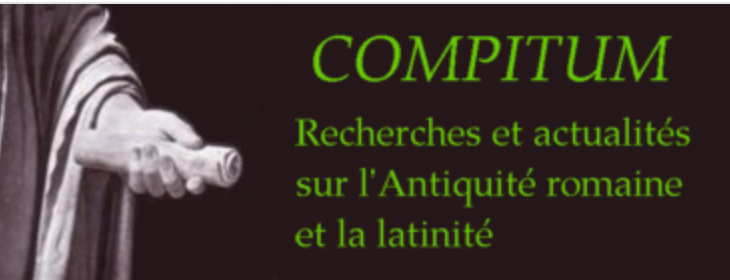
Transferts génériques entre poésies épique et dramatique : un aperçu des enjeux (critiques) à travers les âges / Generic transfers between epic and drama : an overview of the (critical) uses throughout the ages (Cardiff)
« Transferts génériques entre poésies épique et dramatique : un aperçu des enjeux (critiques) à travers les âges »
15ème édition de la Celtic Conference in Classics, Cardiff University : 9-12 Juillet 2024
[English Below]
Organisatrices : Halima Benchikh-Lehocine (Université Grenoble-Alpes), Alexia Dedieu (Aix-Marseille Université), Sarah Orsini (Université Grenoble-Alpes), Anaïs Tillier (Université Grenoble-Alpes)
Appel à communications
Ces dernières années, les chercheurs et chercheuses ont manifesté un intérêt indéniable pour la réception du matériau épique sur les scènes modernes (voir par exemple Macintosh F., McConnell J., Performing epic or telling tales, Oxford, University Press, 2022 ; Macintosh F, McConnell J, Harrison S, Kenward C., Epic performances from the Middle Ages into the twenty-first century, Oxford University Press, 2018). L’objectif que se propose ce panel consiste à élargir cette première perspective afin d’étudier comment la réception du matériau épique ancien a permis ou même stimulé les transferts génériques entre la poésie dramatique et la poésie épique à travers le temps.
Les questions suivantes (la liste n’est pas exhaustive) pourront guider vos réflexions :
Comment le transfert générique peut-il permettre une approche critique ? Comment peut-il être utilisé pour critiquer ? Par exemple, comment les réécritures et mises en scène théâtrales féministes contemporaines de l'épopée antique interagissent-elles avec ce matériau canonique pour subvertir les normes sociales qu'il véhicule ?
Comment les adaptations du début de l'ère moderne qui s'engagent dans de tels transferts génériques parviennent-elles (ou non) à renverser les valeurs traditionnelles (comme dans la pièce Les Amazones d’Anne-Marie Du Boccage) ?
Dans quelle mesure ce transfert générique peut-il faire l’objet d’une lecture critique?
Comment l'épique et le tragique se confondent-ils dans les traductions et les commentaires des auteurs anciens ? Par exemple, les traductions néo-latines des poètes tragiques grecs font très souvent écho à la langue des poètes épiques romains. Les traducteurs empruntent par exemple des images à Virgile dans leurs interprétations des pièces grecques. Les commentaires des œuvres dramatiques sont traversés par les références aux auteurs épiques, et vice versa. Ces lectures et interprétations orientent l'esthétique et le sens de ces œuvres, et modèlent durablement leur réception.
Ce panel vise à fusionner l'étude de la réception de l'épopée et celle du théâtre anciens, et/ou à prolonger cette analyse au moyen des outils offerts par les études de réception critique et la théorie critique contemporaine (études de genre, études sur le handicap, études postcoloniales, études écocritiques), afin d'interroger l'évolution et la réception de deux genres qui partagent une longue histoire.
Informations pratiques : Les propositions de communication, en français ou en anglais, titre provisoire et résumé (250-300 mots), sont à envoyer aux organisatrices par mail avant le 8 mars 2024 (halima.benchikh-lehocine@univ-grenoble-alpes.fr ; alexia.dedieu@univ-amu.fr ; anais.tillier@univ-grenoble-alpes.fr ; sarah.orsini@univ-grenoble-alpes.fr). Les auteurs et autrices des propositions retenues seront informés avant le 20 mars.
[English version] Call for papers
The last years have shown an undeniable interest in the reception of the epic material on modern stages (see e.g. Macintosh F., McConnell J., Performing epic or telling tales, Oxford, University Press, 2022 ; Macintosh F, McConnell J, Harrison S, Kenward C., Epic performances from the middle ages into the twenty-first century, Oxford University Press, 2018). However, our aim is broader since we would like to study how the reception of the ancient epic material has allowed or even stimulated the generic transfers between dramatic and epic poetry through time.
The questions of interest include (but are not limited to) :
How does the generic transfer can allow a critical approach? How can it be used to criticize? for instance, how does contemporary feminist theatrical rewritings and stagings of ancient epic engage with this canonical material to subvert the social norms it carries.
How do early-modern adaptations engaging with such generic transfers manage (or do not manage) to overthrow traditional values (such as Anne-Marie Du Boccage In her play Les Amazones)
How can this generic transfer be read and interpreted through a critical lens?
How are epic and tragic merged within translations and commentaries of the ancient authors: for instance, Neo-Latin translations of Greek tragic poets very often echo the language of Roman epic poets. Translators borrow images from Virgil in their renderings of the Greek plays. Dramatic works are commented upon through the lens of ancient epic works, and vice versa. These readings and interpretations orient the aesthetic and meaning of those works, and durably frame their reception.
This panel aims to study of the generic transfers within the reception of ancient epic and drama, its different functions and aims, and/or to merge it with the frame offered by critical reception studies and contemporary critical theory (gender studies, disability studies, postcolonial studies, ecocritical studies), in order to question the evolution and the reception of two genres that share a long history.
Any proposals for papers (20 or 40 min. in length), in French or English, should include an abstract of ca. 250-300 words. Please indicate the proposed length of the paper. Abstracts and further inquiries should be sent at the panel organizers (halima.benchikh-lehocine@univ-grenoble-alpes.fr ; alexia.dedieu@univ-amu.fr ; anais.tillier@univ-grenoble-alpes.fr ; sarah.orsini@univ-grenoble-alpes.fr) by March 8th, 2024. We will inform the applicants whose abstract has been accepted by March 20th, 2024.